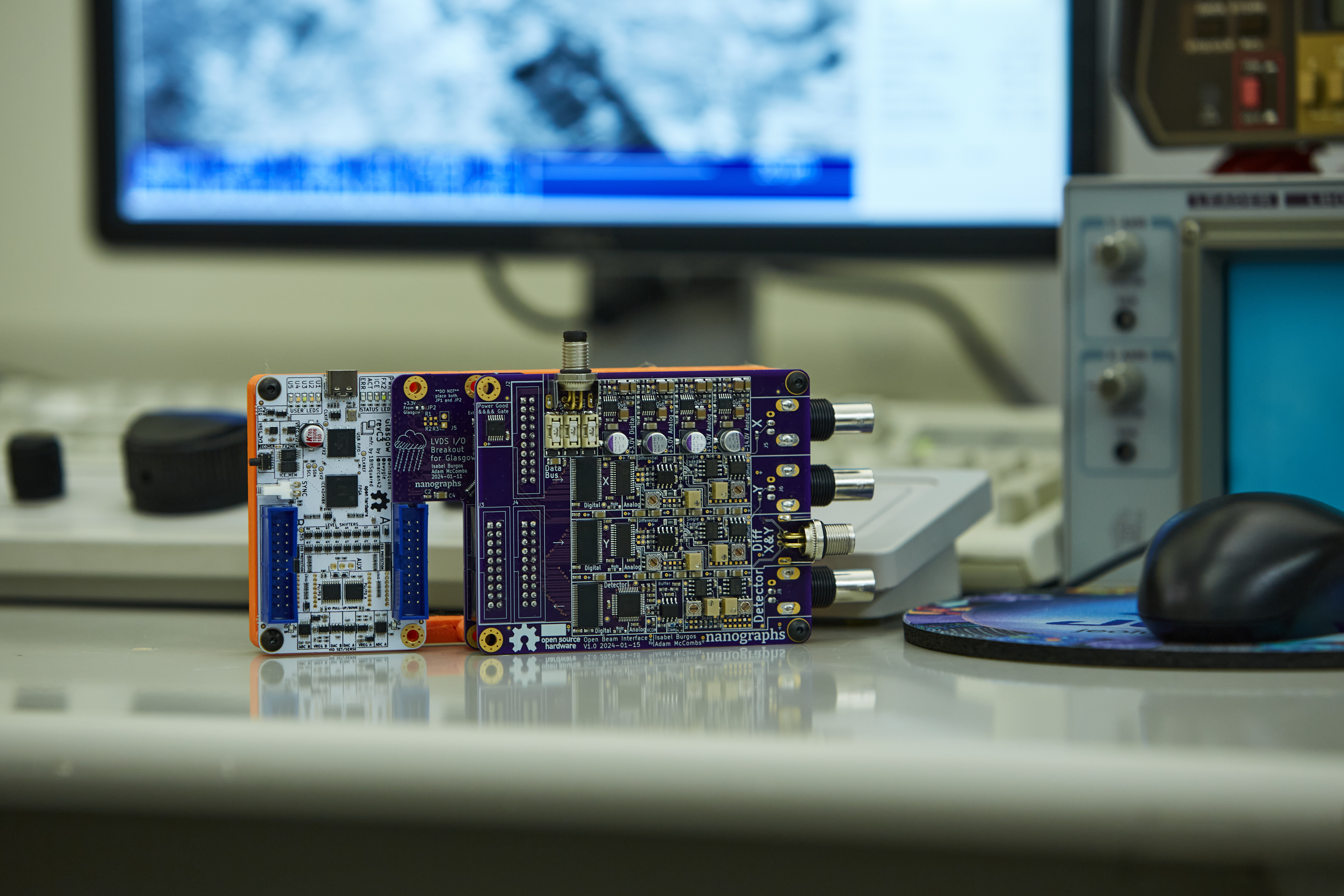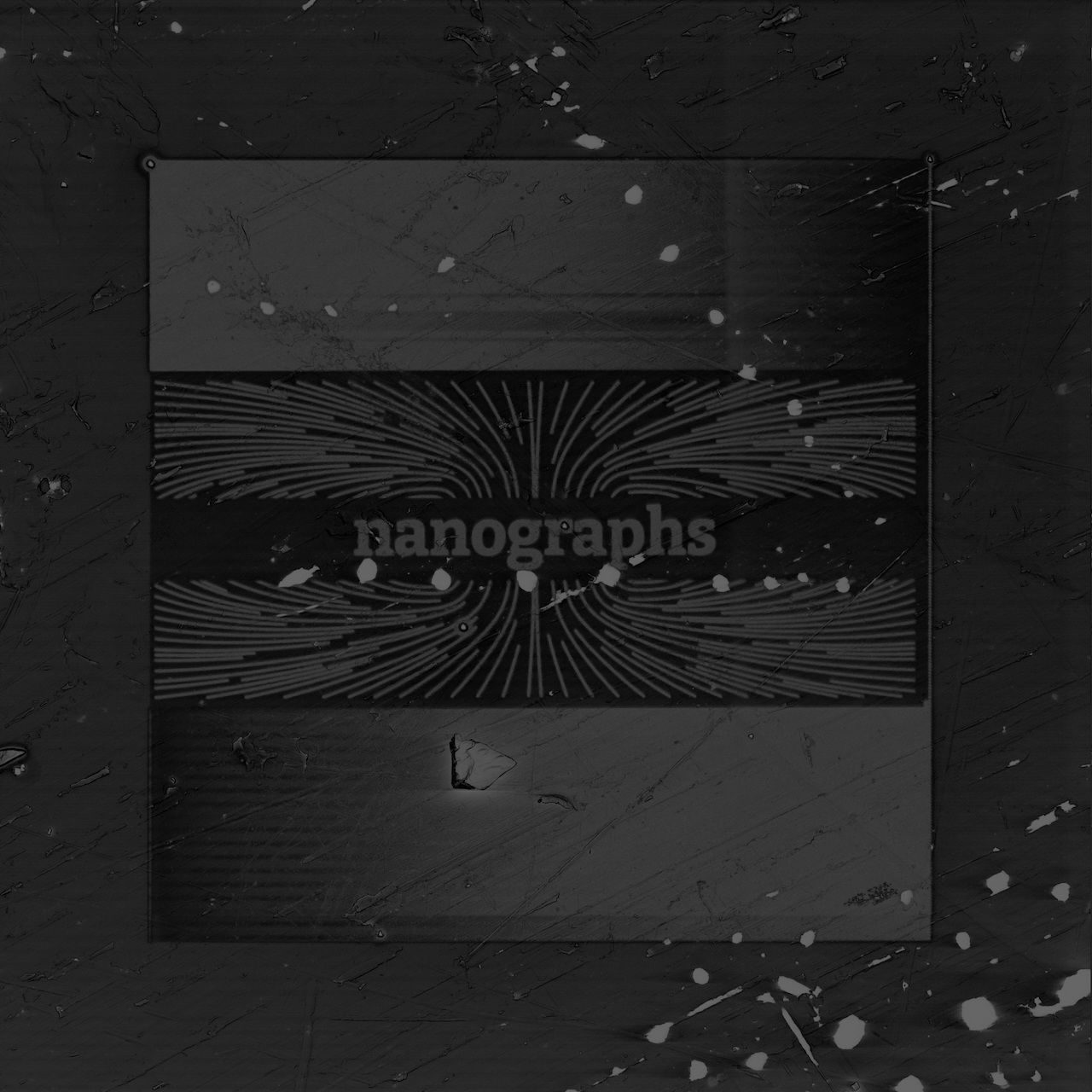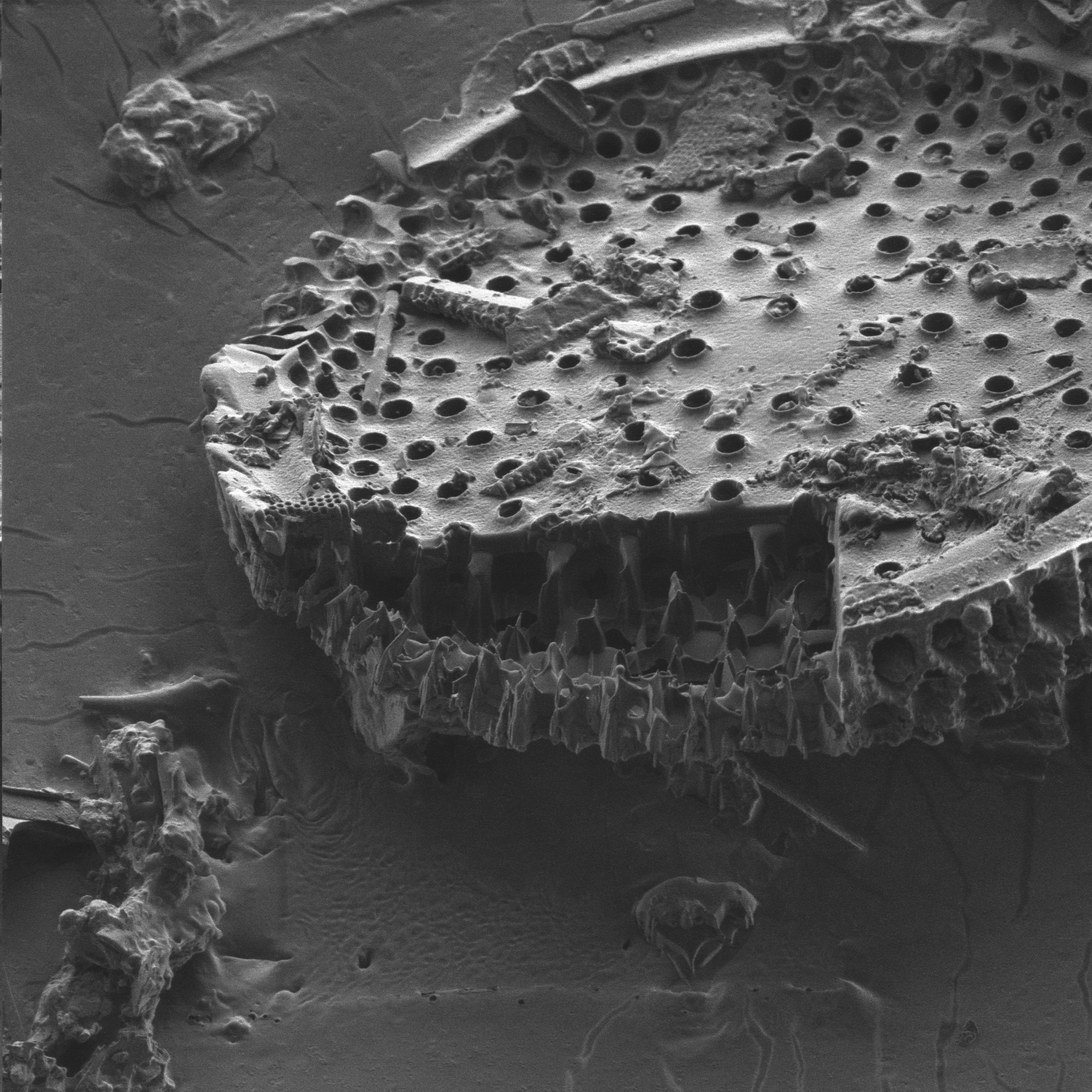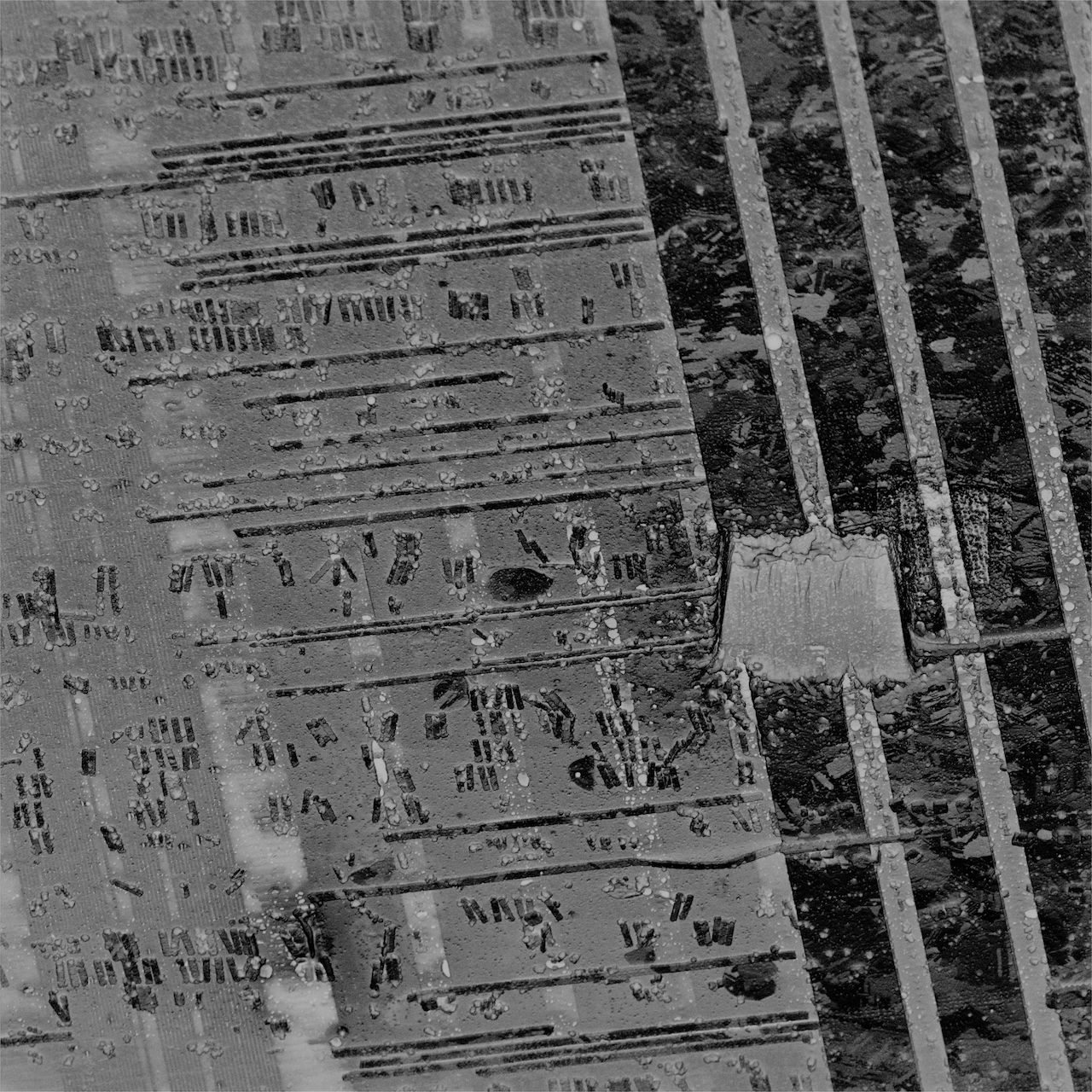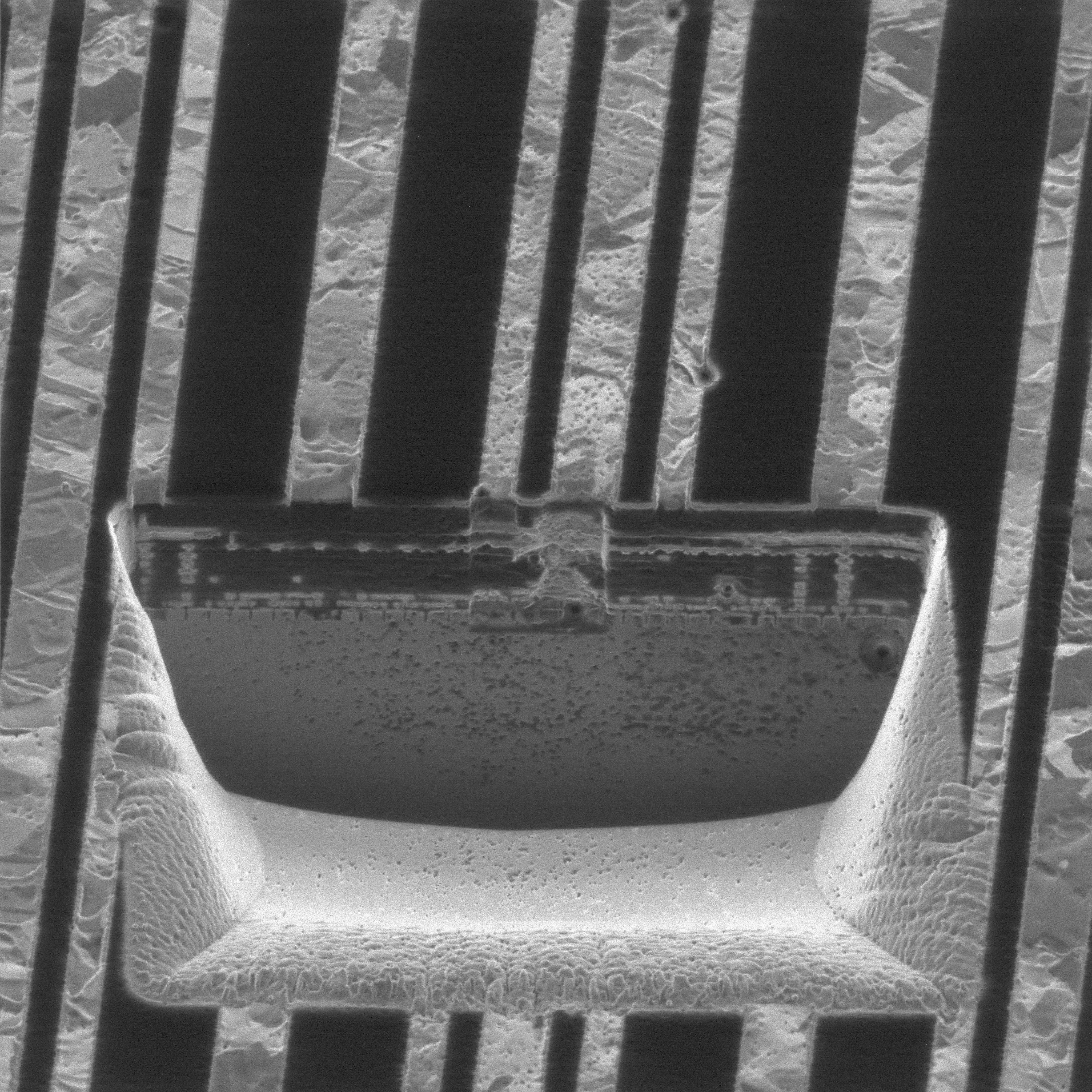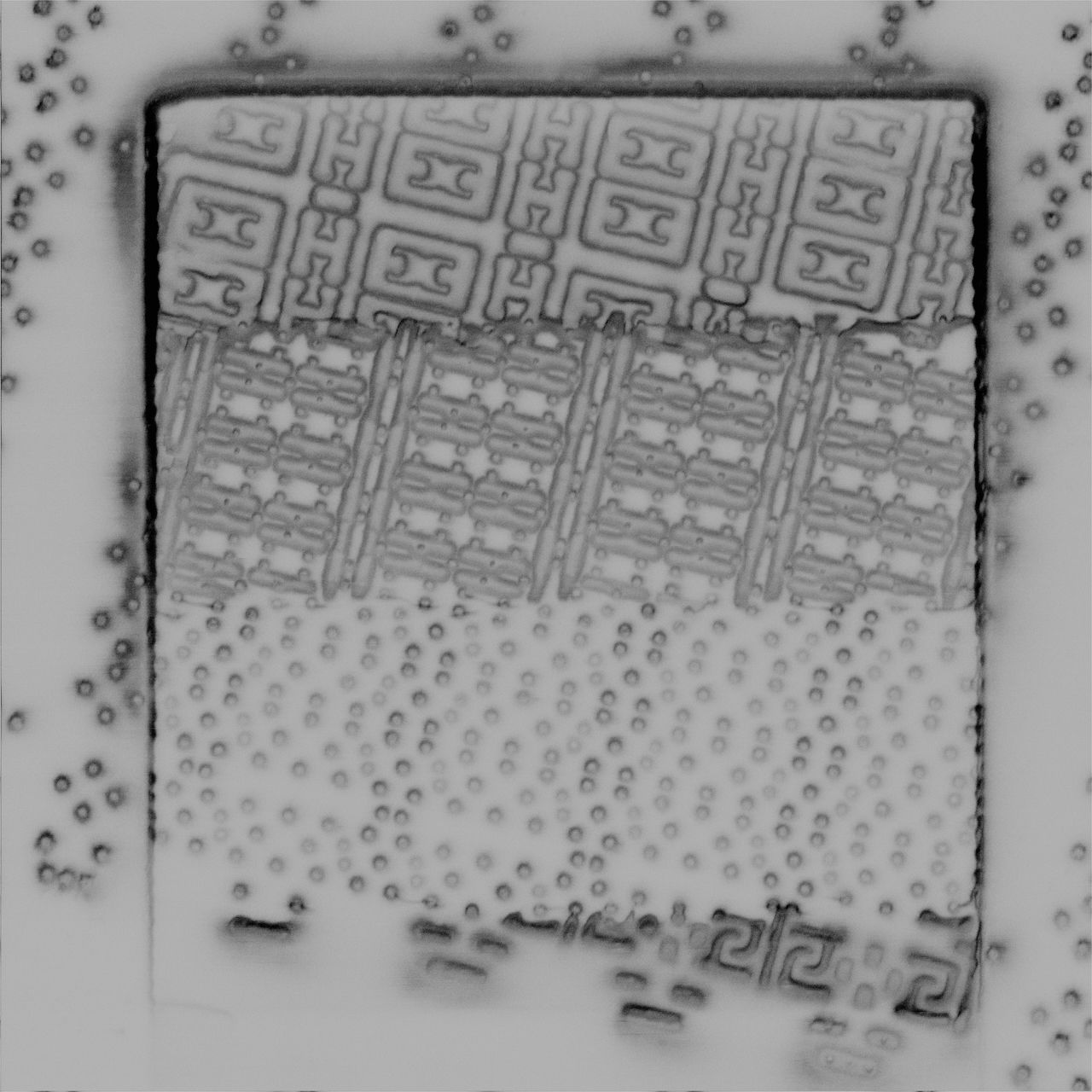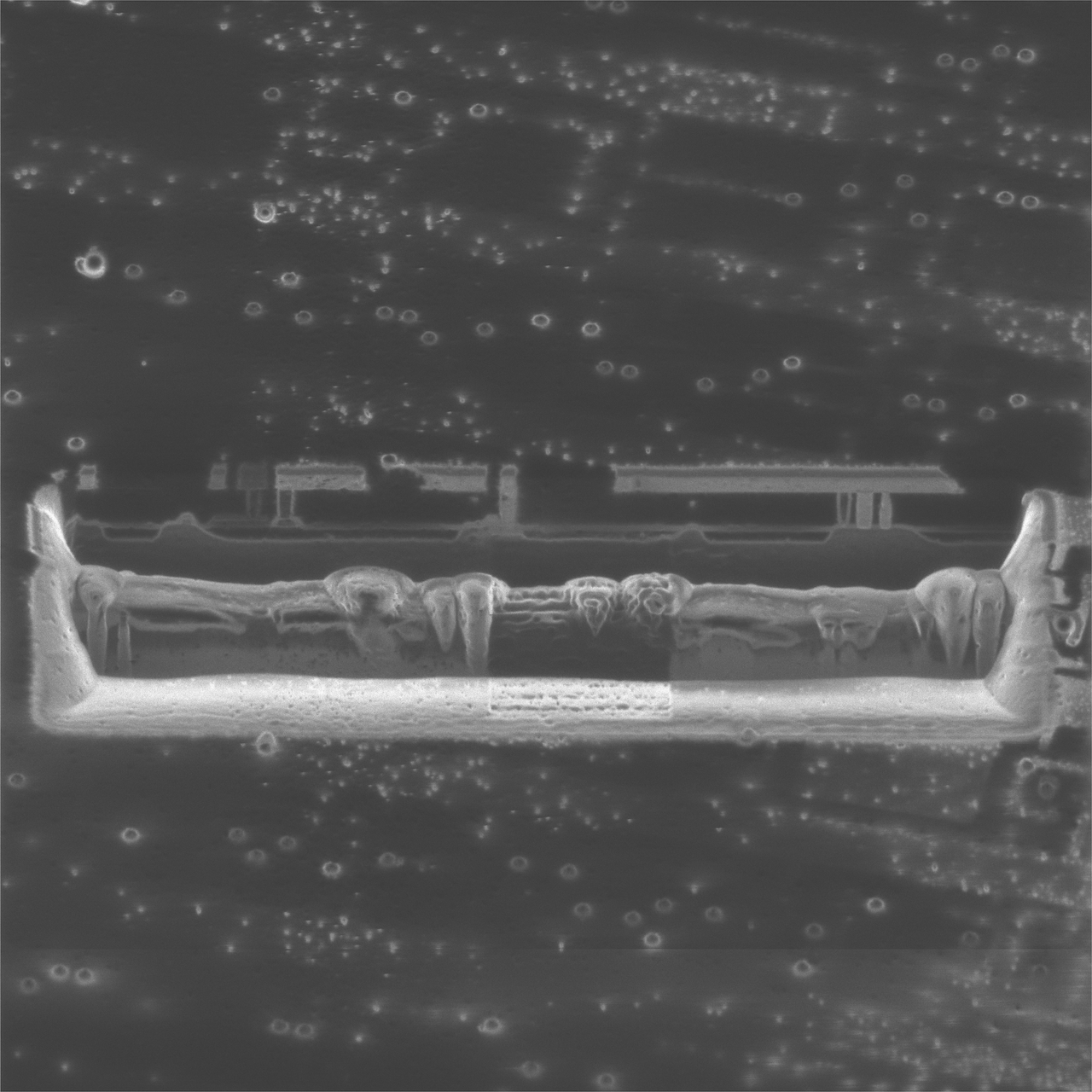Check out our docs at https://nanographs.github.io/Open-Beam-Interface/index.html
The Open Beam Interface project aims to make getting data into and out of scanning and patterning systems substantially more accessible. It is applicable to a varity of scanning and patterning system but is especially useful for Electron and Ion microscopes.
2 high speed Digital to Analog converters to position the beam in X and Y and a high speed Analog to Digital converter to aquire the signal from a detector.
Just what you need to control the beam and get an image.
Built on Glasgow, written in Amaranth.
Glasgow makes getting bytes in and out of the FPGA over USB radically more accessibe. We use that to make getting data into and out of your microscope radically more accessible.
Glasgow handles getting the bytes in and out of your computer. Our software takes those bytes and forms an image, while simultaneously streaming bytes to Glasgow to support raster and vector patterning applications.
- Order and test rev 1 PCBs (Design not uploaded, required significant rework)
- Capture 16,384 x 16,384 images
- Live viewer fast enough to focus and stigmate with
- Raster pattern mode at 16,384 x 16,384 image resolution, with 8 bit grayscale dwelltimes
- Order and test V1.0 PCBs
- Refactor gateware to support 16 bit grayscale vector and raster patterning (thanks Whitequark)
- Integrate refactored gateware with UI
- Make minor design-for-manufacturing and thermal changes to V1.1 PCBs (V1.1 uploaded in progress state)
- Order and test blanking and external/internal scan sellect PCBs
- Implement integrated UI for new 16 bit grayscale imaging, vector and raster patterning modes.
- Integrate fine-grained dwell time control at the gateware level
- Implement Metadata for saved images
- Integrate repository into a single virtual environment and improve install instructions
- Improve documentation
- Block diagram of gateware architechture
- Example scripts
- Analog adjustment procedure
- How many bits are the DACs and ADCs
- 14 bits
- What are the range of dwell times?
- Minimumn dwell time is 125ns, with minimum temporal resolution of 20.83 ns
- Hardware supports 50ns dwells when controlling both DACs and the ADC
- Without sampling the ADC (no video signal), the hardware supports 25ns dwells
- The limitng factor in most modes is USB bandwidth
We have crafted this board to support as many microscopes as possible. We do not know of a SEM or FIB that specifically does not have these signals somewhere inside that can be tapped.
Many microscopes have an existing dedicated connector for external scan inputs. This was in general originally for external beam control coming from EDS or other X-Ray mapping systems.
For microscopes that do not have a dedicated external scan connector, the X and Y ramps that drive the scan coils exist somewhere. A relay can be installed to flip between internal and external scan. Sometimes even when microscopes have a dedicated connector it is better to tap the X and Y signals somewhere else.
-
Has a XY scan input that is either:
- ±1-10V differential
- ±1-10V single ended
-
Has a video output that is:
- ±1-10V single ended
Tapping into the signal path may require fabricating a custom cable.
Microscopes the board has been specifically integrated into, this is far from an exhaustive list of microscopes that we could interface with.
- JEOL 35C
- JEOL 840
- JEOL 63/6400
- JEOL T330
- FEI xT Platform
- FEI xP Platform (support for single beam XY input, video output. In progress: support for blanking and internal/external beam control)
- FIB 200
- Expedia 830
- Expedia 1230
We would like to thank our sponsors' generous sustaining contributions. Without them we would not be here today.
We are always open to potential microscope donations to use for hardware development, in order to expand the range of microscopes and capabilities we can support. Right now we are especially in search of FIBs, Dual Beams, and TEMs.
- JEOL 6320F: Rob Flickenger https://hackerfriendly.com/
- JEOL 1200 Mrk II on loan from Joe Bricker https://www.emqso.com
Thanks to the generous support of our financial sponsors we have been able to dedicate almost all of our time and facility resources to developing the project this far. We are looking for more sponsors in order to continue our work, involve more enginers, and take this project to the next level.
-
Superior Technical Services
- http://superior-technical.com
- Provides excellent 3rd party independent support and service for a range of FEI SEMs, FIBs, and Dual Beams
- Sponsor since May 2023
-
SEMion
- https://www.semionco.com
- Provides FIB, SEM, and STEM analytical lab services. Also provides consumable services such as new LMISs, LMIS re-dipping, and GIS crucible refills.
- Sponsor since May 2023
CERN-OHL-W
